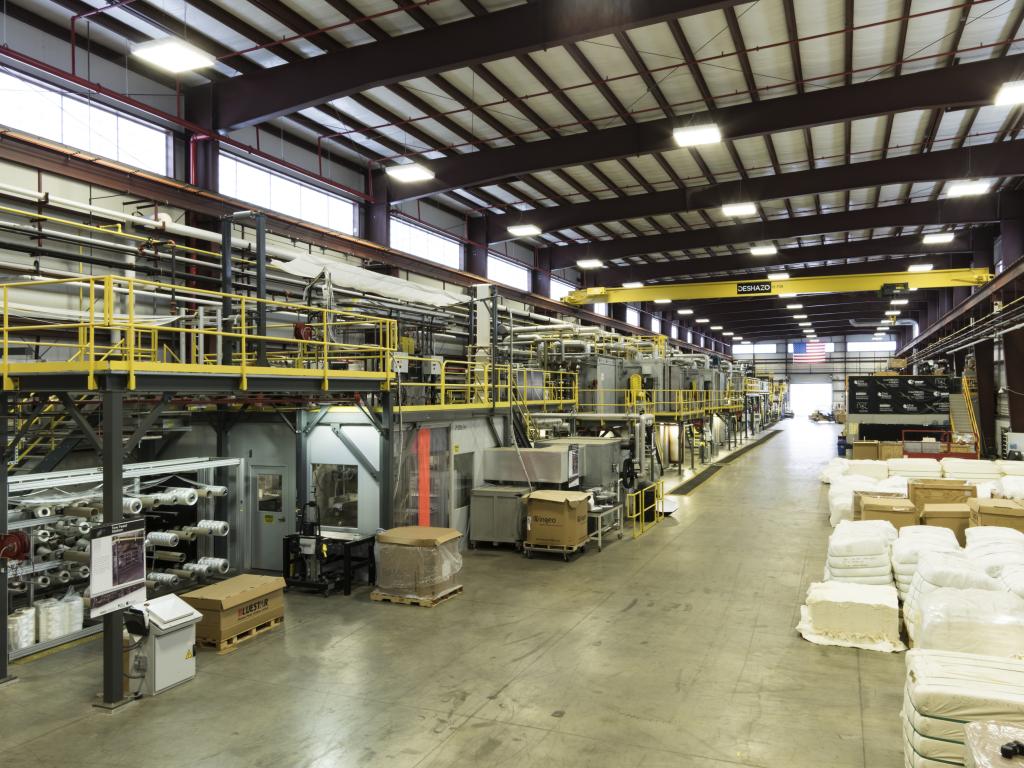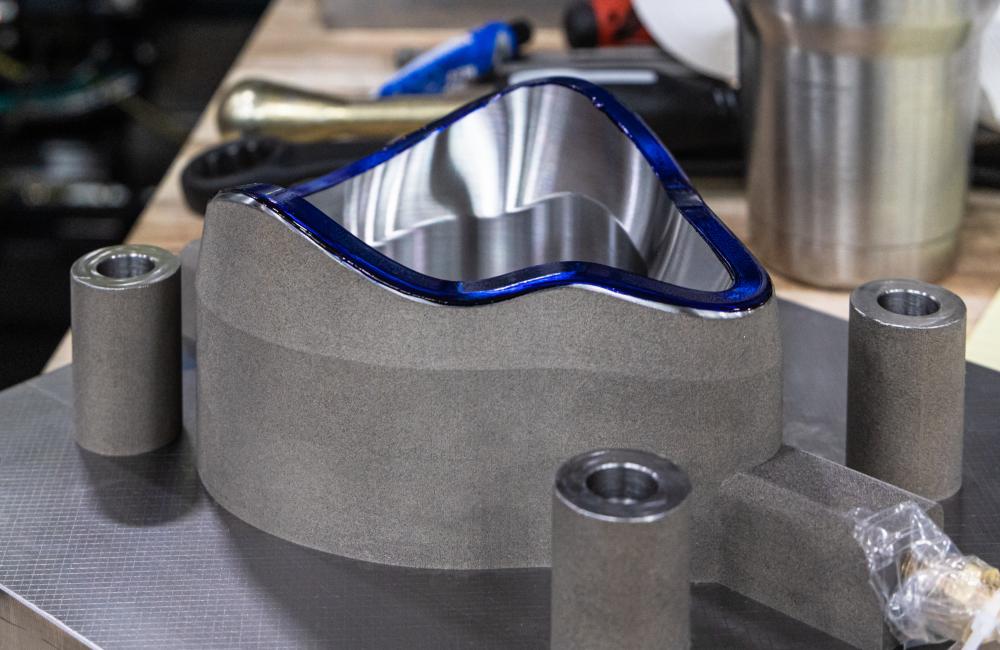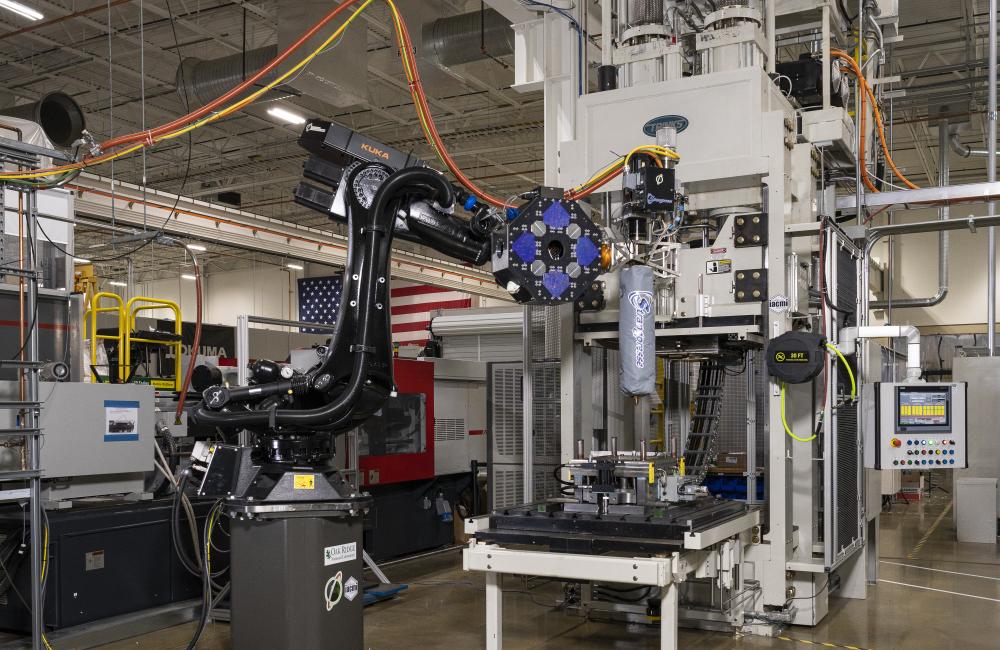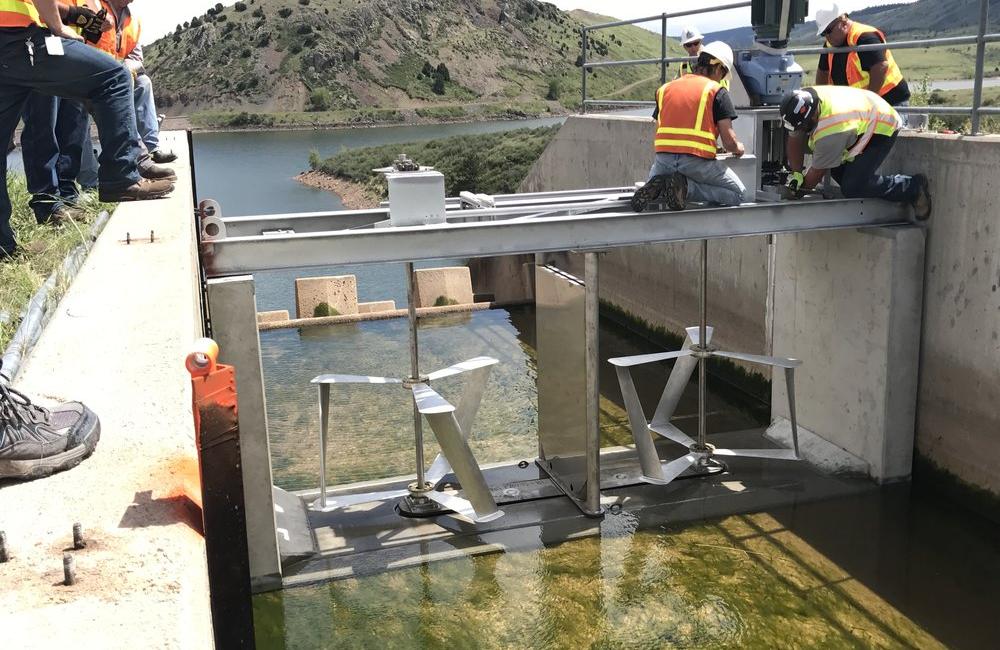Scalable, high-performance manufacturing solutions
Composites combine the versatility of polymers with other fibers to create new materials with tailored properties. Early on, MDF recognized the need for scaling polymer and composite printing technologies to enable short print times of larger products, including vehicles, airplane wings, and wind turbines, as well as molds and other components.
MDF teams have worked with multiple companies across its innovation ecosystem to develop more than 100 new polymer-based materials as well as multiple large-format platforms capable of printing parts twenty to thirty times bigger than was previously possible—up to 60’x20’x10’.
Today, more than eight large-scale, commercially available printing technologies exist, as well as several new printing service bureaus, all derived from the original technology developed at ORNL.
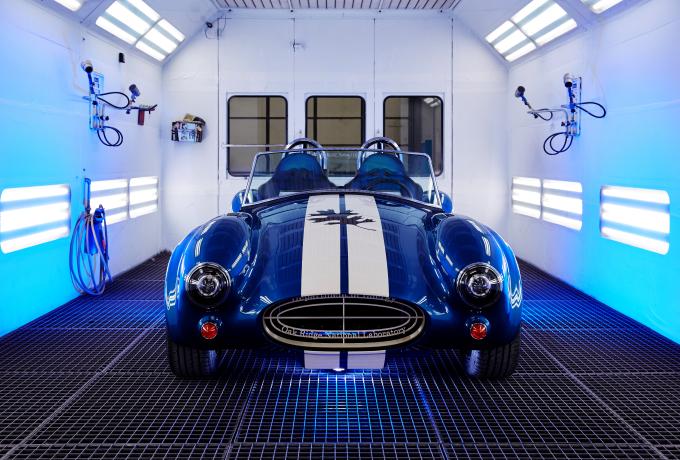
High Speeds; Low CapEx
Research at MDF focuses on reducing dependence on expensive gantry systems in favor of highly mobile, data driven systems that are accessible to small and medium enterprises. These new platforms leverage controls architecture developed at ORNL to help increase automation while reducing costs and improving conditions for workers.
Materials Supply Chain
In collaboration with DOE's Carbon Fiber Technology Facility at ORNL, researchers are working to secure manufacturing supply chains through the development of precursor materials from textiles and lignin to polymers, and hydrocarbon-based materials. Application spaces include clean energy sources, lightweighting for automotive, hydrogen storage, and building envelopes. Visit CFTF for more information.
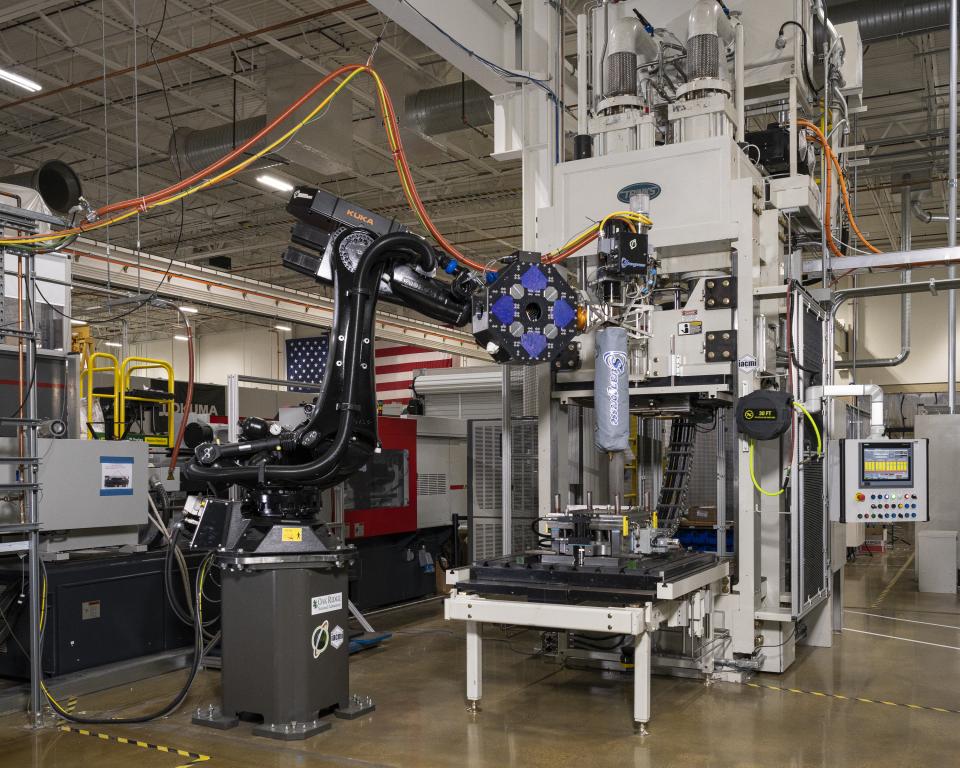
Clean Energy Manufacturing
MDF researchers are developing techniques to print modular sections of wind turbine blades at high speed with higher rates of material deposition. The process uses a combination of 3D printing as well as thermoforming and aims to enable cheaper, more efficient, and more reliable solutions for wind energy.
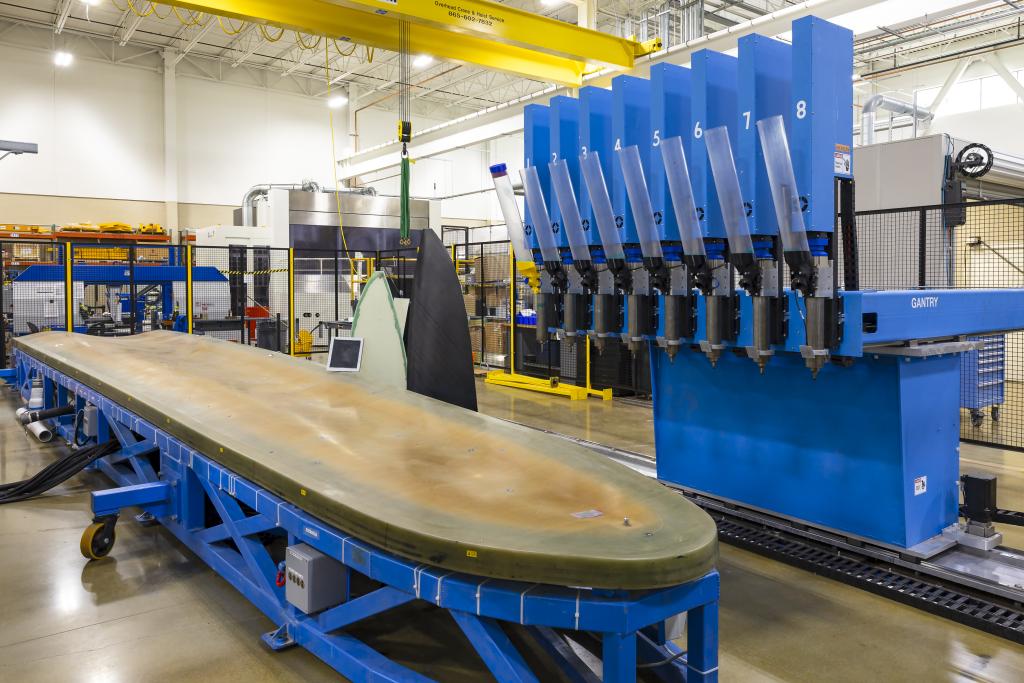
Materials for Extreme Environments
MDF teams are developing techniques and high-performance composite structures for new materials that can withstand high-temperature, radioactive, and corrosive environments. Applications include thermal protection systems, heat exchangers, brakes, turbine, and engine components. Carbon and ceramic composites are being produced and tested using additive manufacturing techniques to improve scalability for full-size components and prototyping.
Orbital Composites licensed the ORNL-developed technology for combining additive manufacturing with compression molding, known as AMCM. The collaboration enabled a system to incorporate continuous fiber printing capable of meeting automotive productivity requirements for cost and affordability.
Recent Impacts
A team from MDF and CFTF collaborated with industry to produce enough specialty filter media to supply 1M+ face masks and respirators each day to US healthcare facilities during the COVID-19 pandemic. The work also led to 500 new jobs when a medical device maker began mass-producing respirator masks using ORNL’s N95 filter media production process.
A team at MDF created a highly automated process for thermoplastic composite manufacturing that combines the benefits of AM and compression molding to produce a high-performance functional composite structure at automotive production rates.
MDF used big-area additive manufacturing to rapidly fabricate reusable molds for a turbine hydrofoil, spokes, and 10kw and 100kw gearboxes for energy company Emrgy. MDF then connected Emrgy with Eck Industries to enable rapid, waste-free fabrication of the blades and gearboxes using an ORNL-developed Al-Ce-Mg alloy. The process enabled an 80 percent cost savings in production.
An ORNL-developed polymer material was used to rapidly print reusable molds for pre-cast concrete to refurbish the 42-story Domino Sugar Building in Brooklyn, NY. Each mold provided a 75% cost saving and produced up to 200 castings compared to the average 3–4 castings with traditional wooden molds.
Get in touch
Vlastimil Kunc
Section Head
Composites Science & Technology


